Remembering the Village Gate, a Mecca for Jazz and so much more
Sharon D’Lugoff reflects on the legendary jazz club her father, Art D’Lugoff, opened in 1958—a cultural landmark that hosted some of the most iconic performers of the 20th century, including Nina Simone, Miles Davis, and Aretha Franklin.
Sharon D’Lugoff spent two decades working at the Village Gate, the iconic Greenwich Village nightclub founded by her father, Art D’Lugoff. She worked there until the day it closed in 1994. Located on the ground floor and basement of 160 Bleecker Street, the Village Gate was the mecca for all those who wanted to see the greats of jazz. Beyond the club, Sharon’s eclectic career has included writing for Circus, a monthly rock magazine, and working as a casting agent. Today, she keeps the spirit of the venue alive through her “Remember the Village Gate” Facebook page. We recently caught up with Sharon at the Roxy to reminisce about the Village Gate’s vibrant past and to explore her rich personal archives.
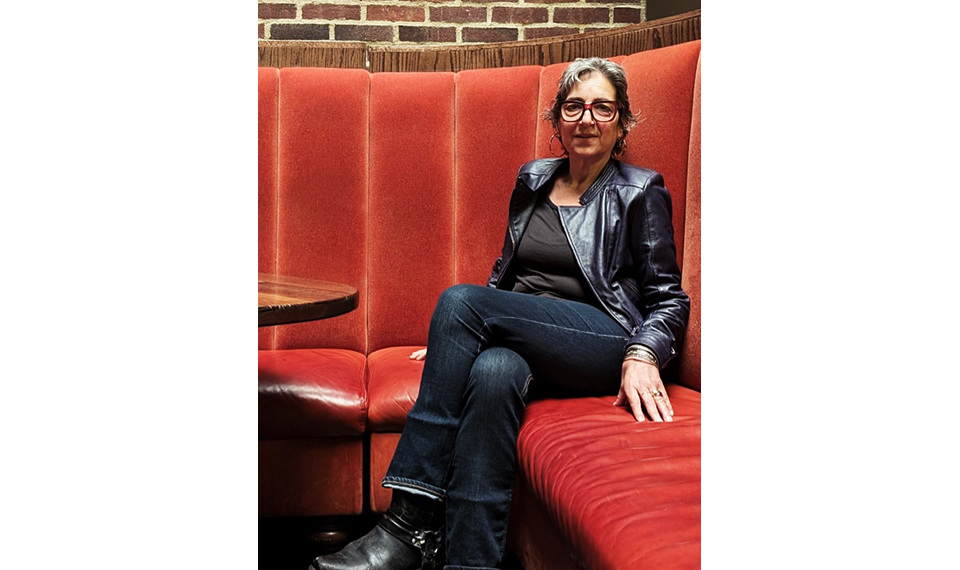
Sharon D’Lugoff at the Roxy.
S.A.M.: When your dad came home from running the Village Gate, did he complain at the dinner table to your mom?
Sharon: My dad never came home for dinner. He was up until four or five in the morning. As kids, we saw my dad sleep all day…. As a child, if we wanted to see my father, we’d have to go to the Village Gate—all four of us, with our mom. We were always there.
S.A.M.: So you were crawling around on the stage?
Sharon: I grew up in the nightclub! We saw all the shows. Jacques Brel, Charlie Parker, Dizzy Gillespie, Miles Davis. We knew all those people throughout my childhood. Dizzy used to come sit in the back with us during the opening act. He played cards with Dad’s staff. And Nina Simone—my father was managing her.
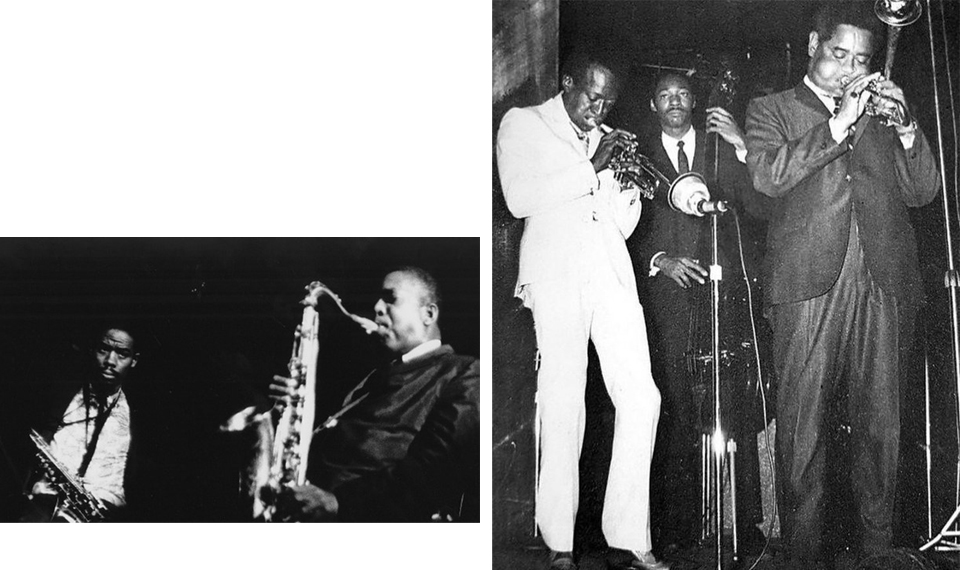
From left: John Coltrane at the Village Gate; Miles Davis, Paul West and Dizzy Gillespie.
S.A.M.: When were you first aware of who Nina Simone was? She must have been an awesome presence.
Sharon: I knew her from the beginning. She was my godmother, basically. She used to cuddle me on our couch at home. Hard to believe from her gentleness back then that she is the same woman who wrote and sang “Mississippi Goddam” just after the Birmingham church bombing. My parents were witnesses at her wedding. I remember seeing her perform the first time I worked at the door at the Gate—I was 16. She had an outburst, which she often had. People asking for their money back. It was not fun, to be honest.
S.A.M.: She was mercurial. But that’s what made her great.
Sharon: Yes, of course.
S.A.M.: Your father was unique in that he had the enormous respect of all these musicians.
Sharon: One hundred percent. Because he was fair, he paid them a living wage. He hired Pete Seeger when he was blacklisted. He put on Paul Robeson, another blacklisted performer, after the government revoked his passport. He did things that most club owners were frightened to do.
S.A.M.: This drew attention to him.
Sharon: Yes, it did, big time.
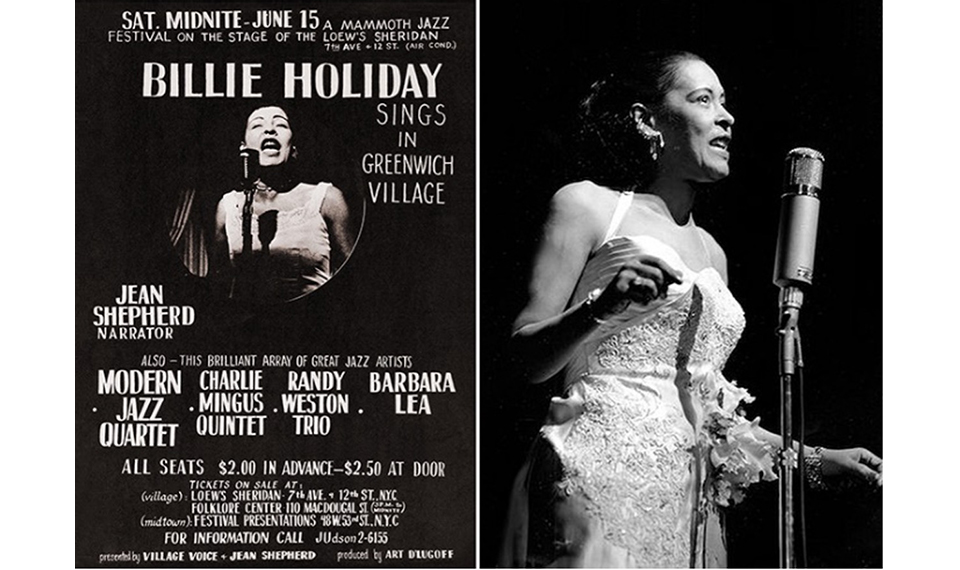
Billie Holiday in the Village, produced by Art D’Lugoff.
S.A.M.: What was the big dust-up over Billie Holiday?
Sharon: To present Billie Holiday, my father had to rent a cinema, the Loew’s Sheridan on 12th Street and 7th Avenue. Had he booked her into his own venue, he would have lost his cabaret license. She had an arrest record for drug use, and the law at that time wouldn’t let her perform in a licensed cabaret. It was very unfair—later, my father went to Mayor Lindsay and said it was a freedom of speech issue. To his credit, Lindsay, a Republican, got the law changed. So I was steeped in the politics of nightlife from an early age.
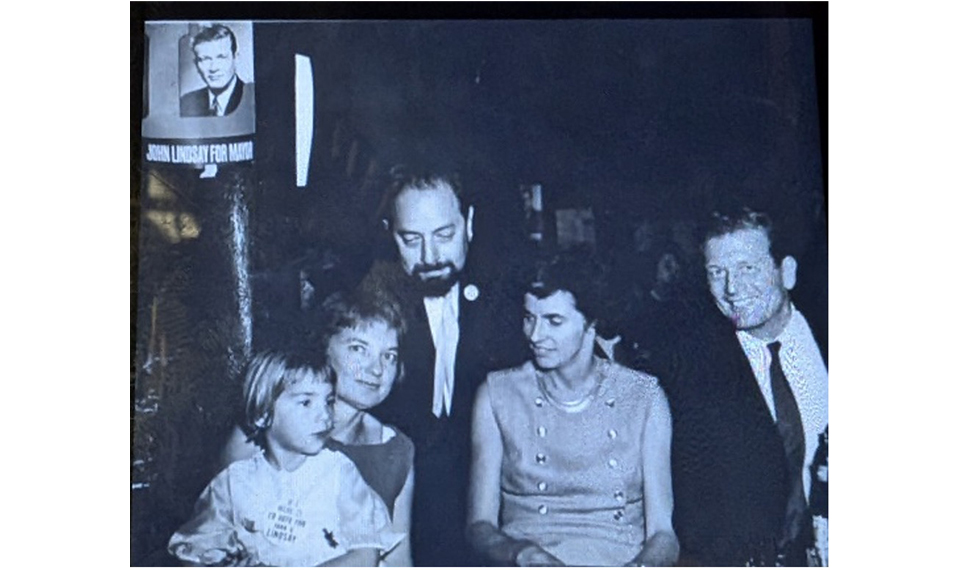
Sharon on her mom’s lap, getting Mayor Lindsay’s attention.
S.A.M.: But getting back to that concert at Loew’s Sheridan, knowing that at any moment the venue could have been busted, and not only that, the star hadn’t shown up. No one knew where she was. Your father must have been pulling his hair out.
Sharon: Yes, that was an ordeal. Besides the clamp-down from the authorities, her driver had to divert from her route numerous times for refreshment stops, which took forever. But the audience stayed, so when she got there at 3 A.M., the place was packed—2,500 people.
S.A.M.: It’s like your father had some special touch, dealing with these complexities like a magician. Except you said he made a big mistake in 1961.
Sharon: Yeah, he didn’t put on Bob Dylan. Because he was a fan of Woody Guthrie—he said he didn’t want to book a second-rate Woody Guthrie [laughs].
S.A.M.: What if someone came to New York in the Sixties and was determined to go to the Village Gate and see ‘The Bird’, Charlie Parker, and then on arriving at the jazz center of the universe, seeing some other folk artist on the same bill? Did you ever have customers who said, “What’s going on?”
Sharon: Some people complained. But my father just wanted to share his joy with everybody. If he had a meal he loved, he wanted to bring all his friends to enjoy the same meal. If he heard music he loved, he put it on the bill with someone you knew. He wanted to open people’s minds to new things. Always. He’d have really eclectic bills. A folk act, a jazz act, and a comedian together. Odetta, Jerry Mulligan, and Woody Allen.
S.A.M.: [Looks at archives of bookings] Oh my god. Richard Pryor, Ahmad Jamal, and Miles Davis on the same bill? Geez, that is wild.
Sharon: Isn’t that crazy?
S.A.M.: Unimaginable.
Sharon: Horace Silver, Herbie Manor, and Aretha Franklin had their first shows at the Gate. It was long. Today, people have a short attention span. They don’t have time to sit down.
S.A.M.: Everything has changed.
Sharon: But from what I see here in the Roxy D’Jango room, it has the spirit of the Gate. I like this place. I like the aesthetic of it. It has the same aged plaster walls as the Gate. It’s not just exclusive—it’s very relaxed. To quote my father, “You don’t have to be hoity toity.” You could be at the bar at the Gate in between some disheveled guys, and you rub your eyes in disbelief because those disheveled guys are Abbie Hoffman, Art D’Lugoff and Timothy Leary.
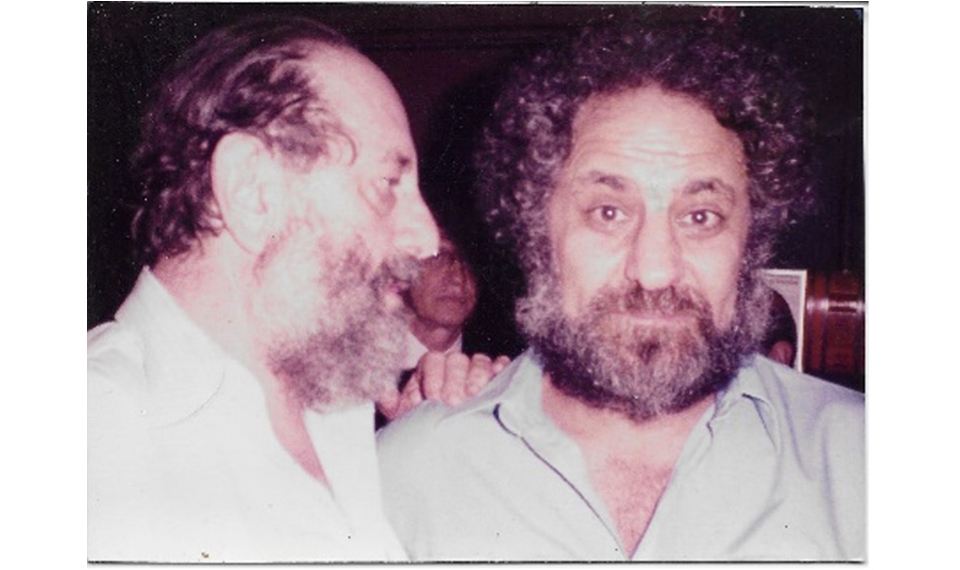
Art D’Lugoff and Abbie Hoffman at the Village Gate benefit for Timothy Leary.
S.A.M.: Right!
Sharon: But at the same time, it’s nice to get dressed up to go out—and if you aren’t into that, then maybe you shouldn’t go out. At least clean up a little bit. Have a good appearance. When you walked into the doors at the Gate, something made you feel that you had arrived. Everyone was in their coolest groove.
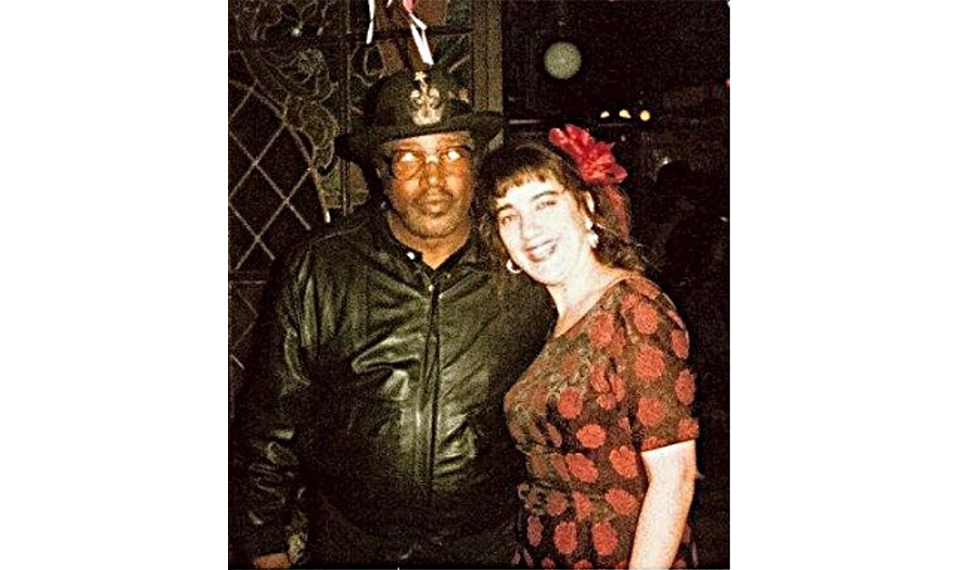
Bo Diddley and Sharon D’Lugoff.
S.A.M.: On a closing note, I love this photo of you and Bo Diddley at the Gate. You, Sharon, have tamed this super tough dude into a state of peacefulness. Can this be the same man who penned the lyrics, “I got a brand new house by the roadside made of rattlesnake hides, I got a brand new chimney made on top, made out of a human skull, now come on take a little walk with me, Arlene and tell me who do you love?”
Sharon: He was a very sweet guy.
Visit Remember the Village Gate—here.
PHOTOGRAPHY Courtesy the D’Lugoff family
FEATURED IMAGE Village Gate, December 24, 1991, by New York Times Co./Sara Krulwich/Getty Images